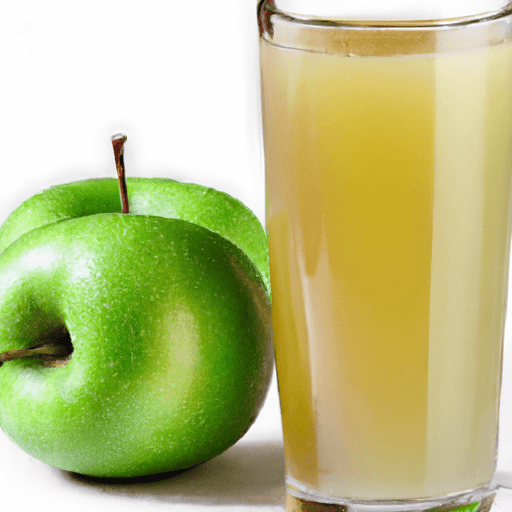The Joy of Apple Juice: A Versatile and Nutritious Delight
Apple juice is a delightful and versatile beverage that can be enjoyed by people of all ages. Its sweet and refreshing taste makes it a popular choice for many, and its uses in cooking go far beyond simply enjoying a glass on its own. In this blog post, we will take a closer look at apple juice and explore its taste, common uses, nutritional value, as well as uncover some interesting history and facts about this beloved fruit beverage.
The Taste of Apple Juice
Apple juice boasts a natural sweetness that is both refreshing and pleasant. The taste can vary depending on the variety of apples used, ranging from tart and tangy to mellow and sweet. No matter the flavor profile, apple juice always has a crisp and clean finish that is incredibly satisfying. This natural sweetness makes it a popular choice for those seeking a healthier alternative to sugary drinks.
Common Uses in Cooking
Apple juice is not only delightful to sip, but it also adds a burst of flavor to a wide range of dishes. Its versatility shines through in both sweet and savory recipes. Here are a few common ways apple juice can be used in cooking:
Marinades and Glazes: The natural sugars in apple juice make it an excellent base for marinades and glazes. Its slightly acidic nature helps to tenderize meat while infusing it with a subtle fruity flavor. It works particularly well with pork and chicken dishes.
Sauces and Dressings: Apple juice can be used to create delightful sauces and dressings. Whether it’s a tangy barbecue sauce or a zesty vinaigrette, apple juice adds depth of flavor and a touch of sweetness.
Baking: Apple juice is a fantastic ingredient to use in baking. It can be incorporated into cakes, muffins, and bread to enhance the overall flavor and moisture of baked goods. Apple juice pairs exceptionally well with cinnamon and nutmeg, adding a lovely autumnal touch to recipes.
Cocktails and Mocktails: Apple juice is a star ingredient in both alcoholic cocktails and non-alcoholic mocktails. From classic apple martinis to refreshing spritzers, apple juice brings a crisp and fruity note to your favorite beverages.
Nutritional Value
Not only does apple juice taste great, but it also offers some notable nutritional benefits. It is rich in vitamin C, which helps support a healthy immune system. It also provides essential minerals such as potassium and magnesium. Additionally, apple juice contains natural antioxidants that may help reduce the risk of certain diseases.
However, it’s important to note that while apple juice has its nutritional merits, it is still high in natural sugars. Moderation is key when consuming apple juice to ensure a balanced diet.
History and Interesting Facts
Apples and apple juice have a rich history dating back thousands of years. It is said that apple trees originated in Central Asia and were later brought to Europe by the Romans. Over time, apple cultivation spread throughout the world, resulting in various apple varieties with distinct flavors and characteristics.
Interestingly, the process of making apple juice has evolved significantly. In ancient times, apples were typically pressed by hand or crushed with simple tools to extract the juice. Today, modern technology allows for the efficient extraction of apple juice, ensuring maximum flavor and nutritional value.
There are also countless apple varieties used to make apple juice, each with its own unique flavor profile. Some popular choices include Honeycrisp, Granny Smith, and Gala apples. These varieties offer diverse tastes, from sweet and aromatic to tangy and crisp.
Conclusion
Apple juice is a delightful beverage that brings a burst of flavor to both sweet and savory dishes. Its refreshing taste, common uses in cooking, and nutritional value make it a favorite among food enthusiasts. Whether you’re adding it to a marinade, baking a delicious treat, or enjoying a glass on a sunny afternoon, apple juice is a versatile and nutritious delight that is sure to please. So, why not incorporate this fruity treasure into your culinary adventures and savor all the joys it has to offer?
Origin: Apple juice is believed to have originated in ancient Persia (modern-day Iran) over 4,000 years ago. Apples were originally grown for their use in winemaking, but the production of apple juice soon followed.
Common Uses: Apple juice is commonly consumed as a refreshing beverage and used as a base for various juice blends. It is also used in cooking and baking to enhance the flavor of dishes, especially in desserts and glazes.
Nutritional Benefits: Apple juice contains essential nutrients such as vitamin C, potassium, and antioxidants. It may provide a source of hydration, as it is mostly made up of water. However, it is important to note that the juicing process may remove some of the dietary fiber found in whole apples.
Unique Properties: Apple juice contains natural sugars, mainly fructose, which gives it a sweet taste. It is also known for its acidity, which can vary depending on the apple variety used. The acidity helps preserve the juice and gives it a tangy flavor.
Historical Significance: In 1869, a dentist named Dr. Thomas Bramwell Welch invented a process to pasteurize apple juice without the use of artificial preservatives or fermentation. This innovation allowed the juice to remain fresh for longer periods and paved the way for the commercial production of apple juice. Today, apple juice is widely consumed and enjoyed by people of all ages around the world.




Use the share button below if you liked it.
It makes me smile, when I see it.